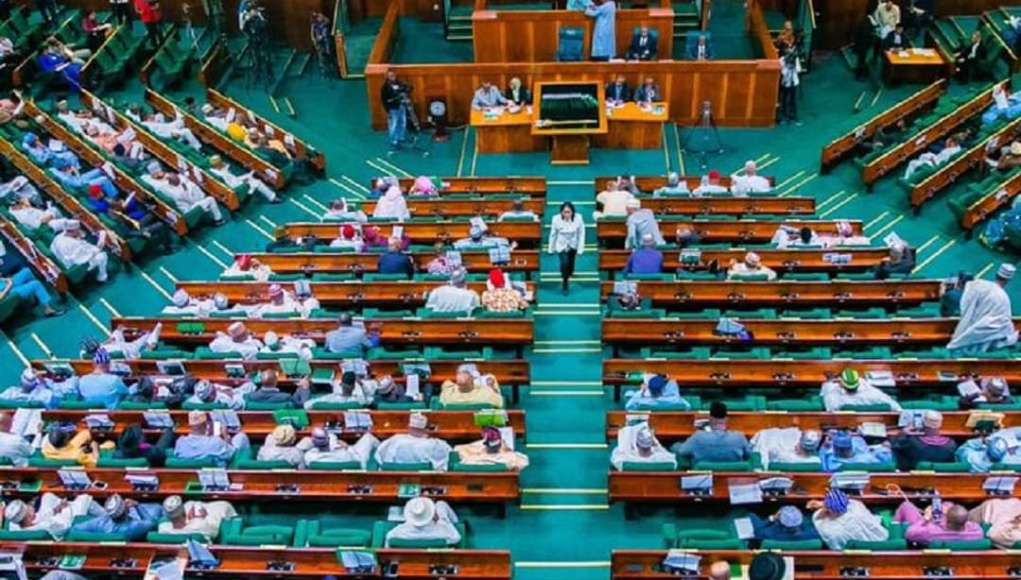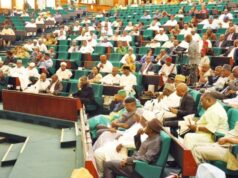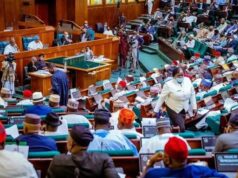The House of Representatives may resume debate over the tax bills currently before the National Assembly for consideration and passage.
This followed the pledge of the southern caucus of the Green Chamber, made up of federal lawmakers from 17 states of the federation.
On Tuesday, the caucus met over the controversial tax bills and resolved to subject them to thorough legislative scrutiny.
The meeting, which took place at the Asokoro, Abuja, residence of the Deputy Speaker, Benjamin Kalu, was attended by the House Majority Leader, Julius Ihonvbere; Minority Leader, Kingsley Chinda; Babajimi Benson (APC, Lagos); Fred Agbedi (PDP, Bayelsa); Pascal Agbodike (APGA, Anambra); and Nicholas Mutu (PDP, Delta).
President Bola Tinubu had transmitted four tax reform bills to the National Assembly following the recommendations of the Presidential Committee on Fiscal and Tax Reforms headed by Taiwo Oyedele for the review of existing tax laws.
They include the Nigeria Tax Bill 2024, which is expected to provide the fiscal framework for taxation in the country, and the Tax Administration Bill, which will provide a clear and concise legal framework for all taxes in the country and reduce disputes.
Others are the Nigeria Revenue Service Establishment Bill, which will repeal the Federal Inland Revenue Service Act and establish the Nigeria Revenue Service, and the Joint Revenue Board Establishment Bill, which will create a tax tribunal and a tax ombudsman.
The bills have been met by scathing criticism in the National Assembly, particularly the House of Representatives, with lawmakers from the northern part of the country reluctant to support the bill in solidarity with governors of their respective states.
Two weeks ago, the House held an executive session to deliberate on the bills but got more than it bargained for when 48 North-East lawmakers, led by the member representing Damboa/Gwoza/Chibok Federal Constituency, Borno State, Ahmad Jaha, opposed the proposed legislation.
A viral video showed Jaha saying, “On behalf of the 48 honourable members from the ravaged North-East sub-region, I want to first of all rely on the position of the three previous caucus leaders. In addition to this, the primary responsibility of every government is simply the welfare of its citizens.
“North-East, even before the insurgency, was the poorest region in Nigeria. Today, our people have been turned into beggars. Billionaires and millionaires of yesterday had to queue up in IDP camps in host communities to collect 10 kg bags of rice.
“If other parts of the country were in our shoes, even this sitting would not be possible. We have concluded that we are going to make further consultations because there is nothing that is cast in stone.”
The same week, 24 lawmakers from Kano similarly objected to the bills and reiterated calls for their withdrawal.
Similarly, former Vice President Atiku Abubakar also waded into the matter, calling for public input before their passage.
“I have followed the intense public discourse on the Tax Reform Bills with keen interest. Nigerians are united in their call for a fiscal system that promotes justice, fairness, and equity. They have made it clear that the fiscal system we seek must not exacerbate the uneven development of the federating units by favouring a few states while unfairly penalising others.
“As a concerned stakeholder, I firmly believe that transparency and objectivity are essential for promoting accountability, good governance, and public trust in policy-making. The public hearing process must facilitate open and inclusive participation by all stakeholders,” Atiku was quoted as saying.
In his argument, the Borno State Governor, Babagana Zulum, faulted the speed at which President Bola Tinubu wanted the bills passed, stressing that the Petroleum Industry Bill took about two decades to scale through.
“Why the rush? The Petroleum Industry Bill took almost 20 years before it was finally passed. But this tax reform bill is being transmitted and receiving legislative attention within a week. It should be treated carefully and with caution so that even after our exit, our children will reap its benefits,” Zulum said.
With this position, the fate of the bills was largely unknown as many northern lawmakers refused to shift their ground.
After a two-week standoff between supporters and opponents of the bills, it appears the bills may be listed for debate in the days ahead.
Addressing journalists after the meeting, the leader of the southern caucus and member representing Bomadi/Patani Federal Constituency, Delta State, Nicholas Mutu, said lawmakers from the southern part of the country were ready to subject the bills to debate.
He said, “The Southern Caucus of the House of Representatives has met. We welcome the bills with so much excitement, and we are open to dialogue. The bills are good for Nigeria.”
Also speaking, the member representing Sagbama/Ekeremor Federal Constituency, Bayelsa State, Frederick Agbedi, said the position of the caucus should not be misunderstood, noting that transmission of executive bills to the parliament was nothing new.
“It is the responsibility of the National Assembly to receive proposals of any sort or bills, be it executive or individual bills. Once they are received, they go through the House procedures and processes, and then the public is invited.
“What the Southern Caucus is saying is that we are ready to take up our official responsibility of making laws for the nation. And so, we welcome the bills and that as we process them, inputs are made from our various states and constituencies. Some states have already received those inputs. We are in constant touch with our constituents and the states that we represent.”
Agbedi dismissed the notion that the tax bills had pitted the South against the North, saying, “There’s nothing about the southern or northern divide. The National Assembly’s responsibility is to make laws for this country.”
On his part, Lagos lawmaker Babajimi Benson noted that the controversy surrounding the bills was not out of place.
He said, “At every point in time, there’s no bill that has a national outlook that there won’t be interest colliding one way or the other. Our job is to sit down with our brothers, find the middle course, and move ahead.”
He added that similar controversies trailed the Petroleum Industry Act and the 13 percent derivation fund for oil-producing communities.
Benson added that the way forward was for lawmakers from every part of the country to sit down over the bills and make the best decision in the interest of the country.
With the acceptance of open dialogue on the bills by the Southern lawmakers, negotiation with legislators across the country may resume in the days ahead. A member of the All Progressives Congress from Ekiti State, Kolawole Akinlayo, told The Punch that the lobbying of lawmakers opposed to the bills would commence soon.
“These bills will pass. All we need to do is to lobby those opposed to the bills. These bills are the best in the history of our country. All we need to do is to convince those who doubt them and make them see a reason to offer their support,” he said.









